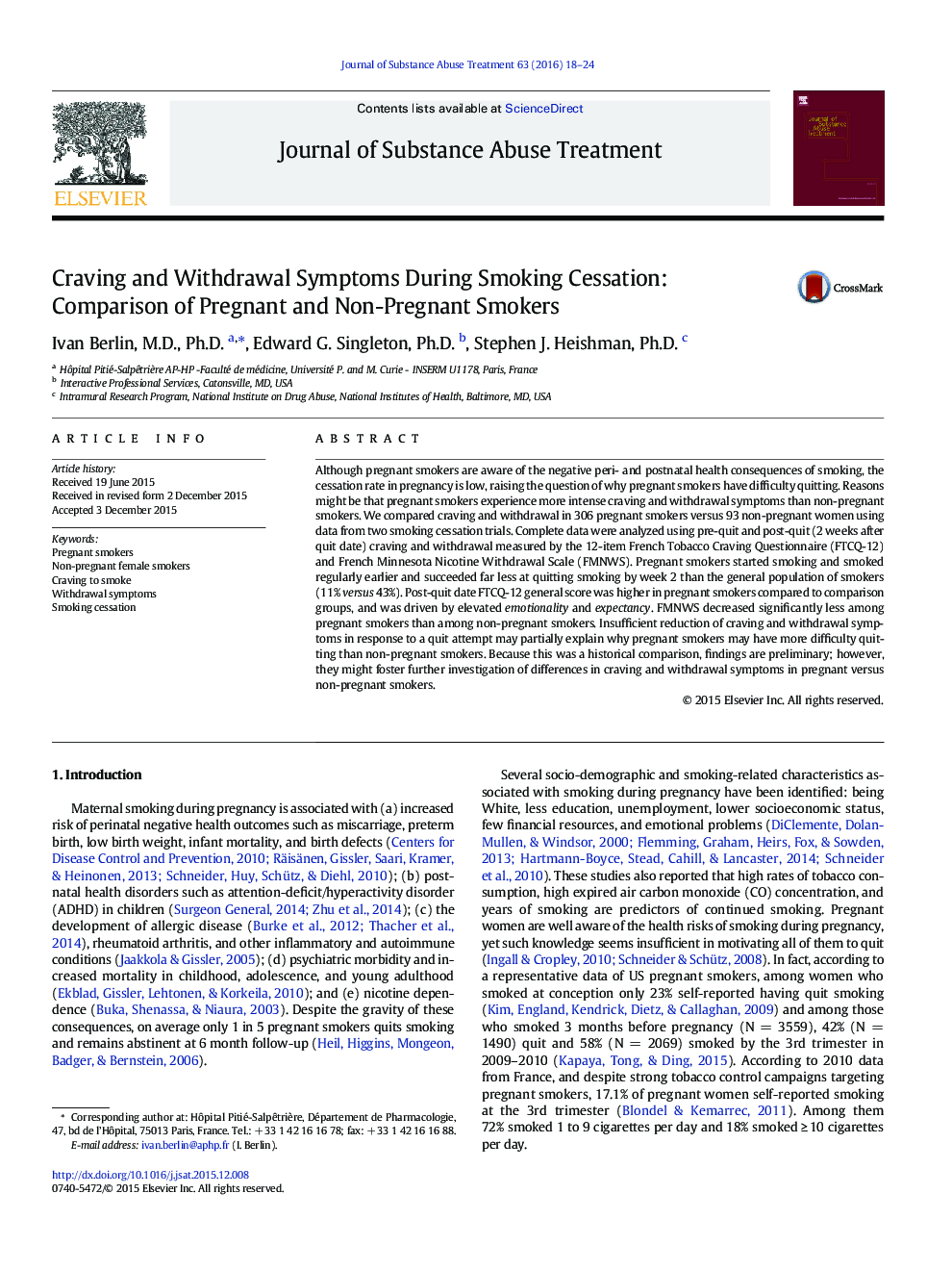| کد مقاله | کد نشریه | سال انتشار | مقاله انگلیسی | نسخه تمام متن |
|---|---|---|---|---|
| 328077 | 543070 | 2016 | 7 صفحه PDF | دانلود رایگان |
• Smoking cessation rate in pregnancy is relatively low, raising the question of why pregnant smokers have difficulty quitting.
• We compared craving for tobacco and withdrawal symptoms in 306 pregnant smokers to 93 non-pregnant female smokers.
• Post-quit craving and withdrawal symptoms diminished less in pregnant compared to non-pregnant smokers.
• Insufficient reduction of craving and withdrawal symptoms may partially explain why pregnant smokers have difficulty quitting.
Although pregnant smokers are aware of the negative peri- and postnatal health consequences of smoking, the cessation rate in pregnancy is low, raising the question of why pregnant smokers have difficulty quitting. Reasons might be that pregnant smokers experience more intense craving and withdrawal symptoms than non-pregnant smokers. We compared craving and withdrawal in 306 pregnant smokers versus 93 non-pregnant women using data from two smoking cessation trials. Complete data were analyzed using pre-quit and post-quit (2 weeks after quit date) craving and withdrawal measured by the 12-item French Tobacco Craving Questionnaire (FTCQ-12) and French Minnesota Nicotine Withdrawal Scale (FMNWS). Pregnant smokers started smoking and smoked regularly earlier and succeeded far less at quitting smoking by week 2 than the general population of smokers (11% versus 43%). Post-quit date FTCQ-12 general score was higher in pregnant smokers compared to comparison groups, and was driven by elevated emotionality and expectancy. FMNWS decreased significantly less among pregnant smokers than among non-pregnant smokers. Insufficient reduction of craving and withdrawal symptoms in response to a quit attempt may partially explain why pregnant smokers may have more difficulty quitting than non-pregnant smokers. Because this was a historical comparison, findings are preliminary; however, they might foster further investigation of differences in craving and withdrawal symptoms in pregnant versus non-pregnant smokers.
Journal: Journal of Substance Abuse Treatment - Volume 63, April 2016, Pages 18–24
